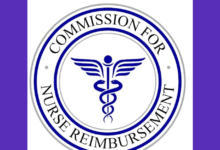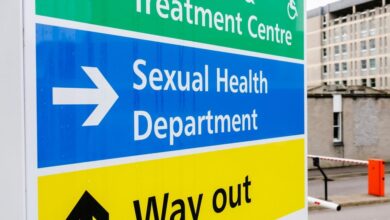Nurse wellbeing concerns as Middle East war escalates

A nurse who leads an organisation representing Arab nursing and midwifery staff has said the escalating conflict in the Middle East is having a knock-on effect on the wellbeing of the UK health workforce.
Ofrah Muflahi, registered nurse and head of the British Arab Nursing and Midwifery Association (BANMA), told Nursing Times the worsening death toll in Gaza, the spread of conflict to other countries and rising islamophobic and antisemitic abuse in health workplaces had made it hard to function as a nurse.
“It’s a challenge to function, having to carry that worry on a day-to-day basis […], knowing that our families are in imminent danger”
Ofrah Muflahi
A long-standing conflict of more than 70 years between Israel and Palestine reignited on 7 October 2023, when Palestinian militant group Hamas attacked and killed around 1,200 Israelis and took around 250 hostages.
In response, the Israel Defense Forces (IDF) – the armed forces of Israel – launched a series of lethal bombardments, ground attacks and air strikes on the Gaza Strip, a stretch of Palestinian land between the south west of Israel and the north of Egypt. This region includes Gaza City, the largest city of the State of Palestine.
As of 12 January 2024, Israel’s attacks on Gaza have killed 23,000 Palestinians, of whom the majority are women and children, alongside causing devastation to civilian infrastructure, according to the United Nations (UN).
The majority of Gaza’s 2.2 million people are now displaced, and UN high commissioner for human rights, Volker Turk, recently described the “appalling suffering and loss of life” as a result of the conflict, while renewing his calls for a ceasefire.
The UN’s most recent estimates show roughly 300 health workers have been killed in the region since 7 October. Unofficial sources claim more than 100 nurses have died in Gaza in that time.
Ms Muflahi said the conflict had hit the wellbeing of Arab nurses working in the UK hard, some of whom have family, friends or former healthcare colleagues in Gaza.
War in the region has also begun to spread to nearby countries. This week, British and American naval and air forces launched attacks against the Houthis, a rebel group based in Yemen which began to fire on Israel and attack commercial ships in the Red Sea.
Ms Muflahi, whose mother was from Yemen and who has family there, said: “The conflict has a profound impact on me, and on many other Yemeni and other Arab nurses and midwives in the UK.
“It’s a challenge to function, having to carry that worry on a day-to-day basis […], knowing that our families are in imminent danger.”
Many nurses with family in Gaza, Ms Muflahi said, have lost contact and are relying on television, social media and other less formal routes to find out if they are OK.
“It’s not a situation you want anyone to be in,” she said. “That sense of real anxiety, because it is out of your control and having to wait until telecommunications are back up to reach out to family.
“It’s not just family members, but healthcare professionals that we may know who are working out in those hospitals; friends and colleagues who we’ve worked with in the past.”
Ms Muflahi said that it was not just those with direct ties to the areas affected who had felt the impact of the war, nothing that nursing was a “global community”.
With estimates of the number of nurses killed ranging from the dozens to more than 100, and the UN reporting hospitals and other medical infrastructure in Palestine being attacked almost 600 times since October, Ms Muflahi said the mental toll on the workforce across the world had been “devastating”.
“That’s [up to] 110 of our [nursing] workforce, as a global workforce, that we have lost as a result of conflict in Gaza and the numbers continue to rise […] because they have safeguarded and protected their patients,” she said.
“That’s what we do as nurses – we protect, and we safeguard and we look after those who are most vulnerable, regardless of where we are.”
As well as this, she said that – in her work with BANMA – she had heard of a rise in islamophobic and antisemitic abuse against nurses in the workplace in response to the conflict.
“I will regularly get calls from nursing staff to say that they have been subject to abuse in the workplace,” she added.
“I think there is a sense of fear and that’s something that has been escalated in terms of what [NHS leaders] should be doing to safeguard [nurses].”
She said international nursing and midwifery associations, such as BANMA, were there to help and encouraged staff to reach out to them if they needed support.
Ms Muflahi continued: “As well as what’s happening in Gaza, what I’m seeing now is that I’m getting members contacting me in relation to the Yemen and other countries. For example, there’s challenges at the moment in Sudan.
“So, the support is really important and the support that you have around you is really important.”







